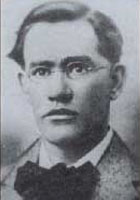Behind The Closed Eye Poem by Francis Ledwidge
Behind The Closed Eye
I walk the old frequented ways
That wind around the tangled braes,
I live again the sunny days
Ere I the city knew.
And scenes of old again are born,
The woodbine lassoing the thorn,
And drooping Ruth-like in the corn
The poppies weep the dew.
Above me in their hundred schools
The magpies bend their young to rules,
And like an apron full of jewels
The dewy cobweb swings.
And frisking in the stream below
The troutlets make the circles flow,
And the hungry crane doth watch them grow
As a smoker does his rings.
Above me smokes the little town,
With its whitewashed walls and roofs of brown
And its octagon spire toned smoothly down
As the holy minds within.
And wondrous impudently sweet,
Half of him passion, half conceit,
The blackbird calls adown the street
Like the piper of Hamelin.
I hear him, and I feel the lure
Drawing me back to the homely moor,
I'll go and close the mountain's door
On the city's strife and din.
Even in the early part of the 20th century the city had become a cacophony of noise to those of rural background. The city's strife and din are left behind as Ledwidge once more embraces with his unerring eye the joys of country life. It is hard to credit and understand why we insist on building cities of such great immensity where sunlight fails to alleviate concrete's grim pallor. The dewy cobwebs of the tangled braes are the countryside's bright lights.
This poem has not been translated into any other language yet.
I would like to translate this poem
I love this poem, it takes me to the place where all is secure and unchanged.